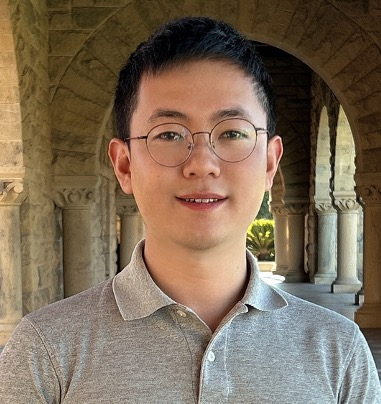Workshop on Rethinking Financial Time-Series
Foundations, Frontiers, and Future Directions
Held in conjunction with the 6th ACM International Conference on AI in Finance (ICAIF ’25) in Singapore
Call for Papers
Important Dates
(UTC-0)
-
Submission Deadline:
October 2nd, 2025
-
Author Notification:
October 15th, 2025
-
Camera-Ready Deadline:
October 31st, 2025
-
Workshop Date:
Nov 15th or 16th, 2025
Submission Guidelines
Authors must submit their paper (as a PDF) via the workshop submission site. At least one author of each accepted paper must attend the conference to present their work.
Format and Awards
Submissions are limited to 4 pages in length, excluding references and appendices. The paper format should be the same as the main ICAIF conference. We will be awarding a Best Paper Award to recognize outstanding contributions.
Review Process
The review process will be double-blind. There will be no rebuttal period.
Presentation and Proceedings
All accepted papers will be invited to a poster session. Participants are required to print and bring their own posters to the event. Detailed information regarding poster format and submission requirements will be provided by the organizers upon acceptance. Selected papers may also be given the opportunity for an oral presentation, subject to schedule constraints. The workshop is non-archival, and there will be no official proceedings. Only the names of the authors and the titles of the accepted papers will be posted on the website; the papers themselves will not be made public.
Invited Speakers
The list of confirmed speakers will be announced soon. Stay tuned!
Topics of Interest
Foundational Time-Series Principles
- Principled time-series methods for heavy-tails, volatility clustering, and regime shifts.
- Post-mortems of time-series model failures in live trading.
- Robust benchmarks and backtesting protocols for financial time-series.
- High-fidelity synthetic time-series generation (e.g., GANs, SDEs).
Frontiers in Time-Series Data & Models
- Modeling non-stationary, multi-modal, and irregularly-sampled time-series.
- Online learning and adaptation to distribution shifts in time-series.
- Foundation models for financial time-series: Scaling laws and limitations.
- Self-supervised representation learning for time-series.
New Paradigms for Time-Series Analysis
- Causal discovery and inference from observational time-series data.
- Interpretability of deep learning models for time-series forecasting (XAI).
- Rigorous uncertainty quantification for probabilistic time-series forecasting.
- Integrating market microstructure into time-series model design.
Tentative Schedule
08:00 - 08:05
Opening Remarks
08:05 - 08:35
Keynote #1
08:35 - 09:05
Invited Talk #1
09:05 - 09:45
Best Papers Talks (#1-#2)
09:45 - 10:00
Coffee Break
10:00 - 11:20
Invited Talks & Best Paper
Invited Talk #2, Invited Talk #3 (Industry), Best Papers Talk #3
11:20 - 11:55
Keynote #2 & Closing Remarks
11:55 onwards
Networking & Poster Session
Organizers
About the Workshop
Financial time-series analysis sits at the epicentre of today's algorithmic markets. However, its core foundations remain unsettled; the heavy-tailed noise, abrupt regime shifts, and market-microstructure frictions inherent to financial data continue to defy standard modelling assumptions. Ignoring these fundamentals has led to models that are often brittle in practice.
Simultaneously, the field is being reshaped by new frontiers in data and modelling. The proliferation of cross-modal signals from millisecond order-book updates and satellite feeds to generative-AI-curated news is overwhelming traditional pipelines. This data deluge has spurred the rise of large-scale foundation models, challenging us to reconcile immense scale with statistical soundness and avoid creating sophisticated yet unreliable black boxes.
This workshop provides a forum to confront these questions head-on. We solicit contributions that re-evaluate foundational principles, push the frontiers of model development, or chart future research paths. We welcome submissions on principled learning for volatile data, robustness and distribution shifts, novel benchmarks and evaluation protocols, case studies of model failures, and methods for causal inference or interpretability.
Program Committee
Cris Salvi
Imperial College London (United Kingdom)
Lingyi Yang
University of Oxford (United Kingdom)
James Pedley
University of Oxford (United Kingdom)
George Nigmatulin
University of Oxford (United Kingdom)
Yiyuan Yang
University of Oxford (United Kingdom)
Huidong Liang
University of Oxford (United Kingdom)
Bohan Tang
University of Oxford (United Kingdom)
Keyue Jiang
University College London (United Kingdom)
Zepu Wang
University of Washington (United States)
Xingjia Zhang
Stevens Institute of Technology (United States)
Wenjie Du
PyPOTS Research (Canada)
Yihao Ang
National University of Singapore (Singapore)
Qingren Yao
Griffith University & Shanghai AI Lab (China)
Bosong Huang
Griffith University (Australia)
Tong Guan
Griffith University & ZJU (Australia)
Kyungjae Lee
Korea University (South Korea)
Gyeong-Moon Park
Korea University (South Korea)
Hyoungwoo Kong
HUFS (South Korea)
Youngbin Lee
ELICE (South Korea)
MyoungHoon Lee
Seoul National University (South Korea)
Yash Gupta
Headlands Technologies (United States)
Ng Chun Chet
AI Lens Sdn Bhd (Malaysia)
Zhe Wang
AWS Bedrock (United States)
Yahia Shaaban
MBZUAI (UAE)
Zeeshan Memon
Emory University (United States)
Asad Khan
Goldman Sachs (United States)
Juhyeong Kim
Mirae Asset Global Investments (South Korea)
Jiuding Duan
Allianz Global Investors (United States)
The program committee is subject to updates as more members are confirmed.
Call for Program Committee
To prepare for a large number of submissions, we plan to include a few external supporters in advance. We invite researchers and practitioners with relevant expertise to apply to join our Program Committee.
Apply to be a PC Member









